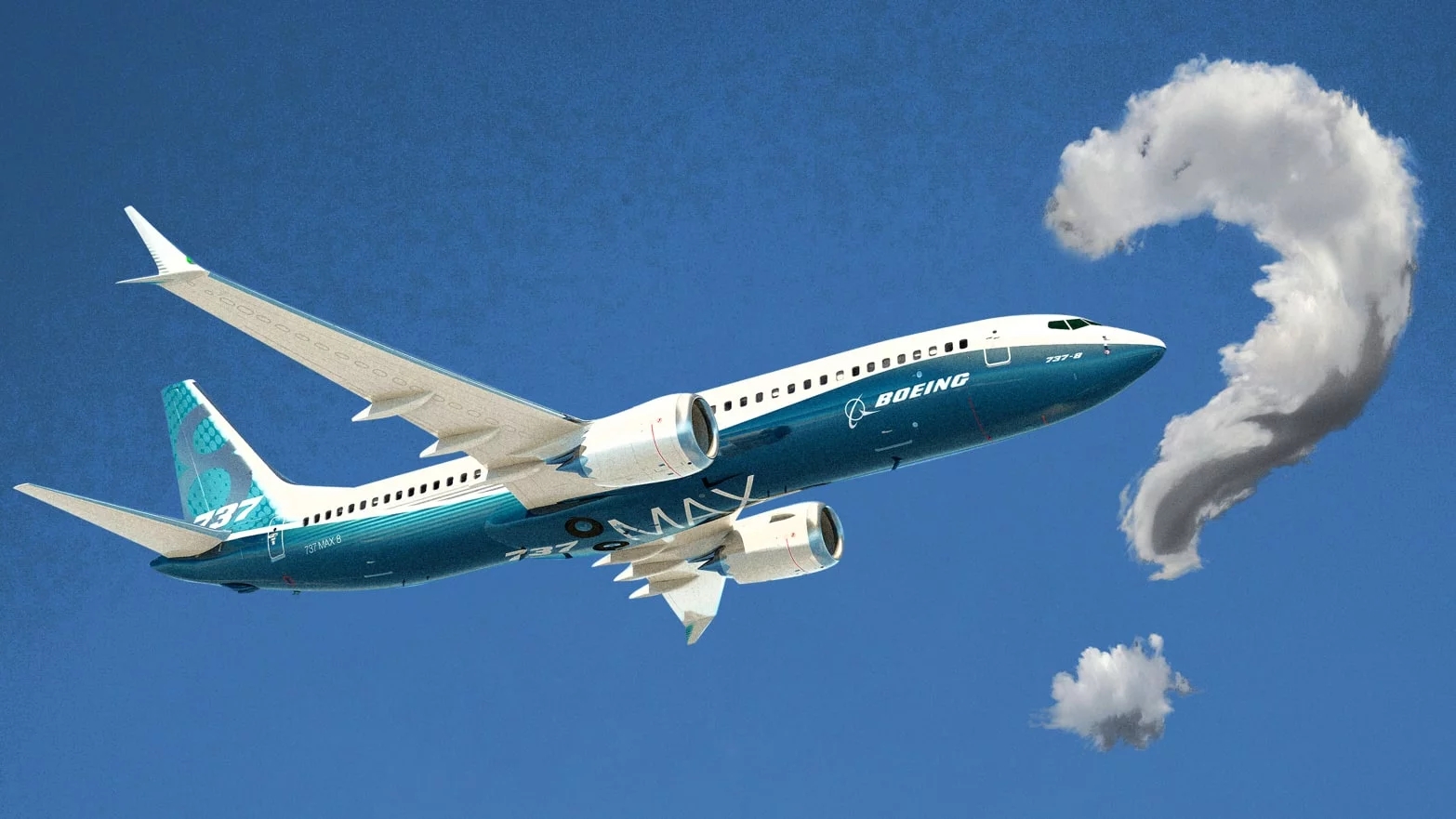
Entering 2024, Boeing suffered a door black. On January 5, a Boeing 737 aircraft of Alaska Airlines in the United States was suddenly hit by an emergency hatch accident. On January 13, an All Nippon Airways Boeing 737 returned home due to cracks in the cockpit glass. On January 14, a Boeing 777 operated by All Nippon Airways collided with the tail of a Boeing 717 operated by Delta Air Lines at Chicago's O 'Hare International Airport. In a short period of half a month, one accident after another dragged Boeing into a crisis of trust.
The three accidents not only reduced the trust of Boeing, but also suffered a sharp decline in its stock price. On Jan. 8, Boeing shares closed down more than 8 percent, wiping out $12 billion in market value. On the following January 11 and 12, Boeing shares continued to fall, falling more than 2% each day. The FAA has grounded more than 171 Boeing 737 MAX 9s, and the European Space Agency has also ordered them to be grounded and inspected. What's more, affected by a number of accidents, many countries including China have postponed or canceled orders with Boeing, and Boeing's economic losses in this round of accidents are expected to increase. What happened to the once-glorious Boeing?
In fact, Boeing's predicament today is tracable, that is, a rush for success. In fact, the media has long reported it, but it has not attracted the attention of all parties. The staff of Boeing passenger aircraft has long said that Boeing often pays more attention to production speed rather than production quality in the production process, and even some employees have not been properly disposed of after repeatedly giving feedback to Boeing's senior management about quality problems. Emirates Airlines said after the Boeing 737 emergency door incident that Boeing's quality control problems have existed for a long time and the accident was not a chance. This attitude of quick success is the culprit that has led to a series of accidents of Boeing passenger planes around the world.
Once the giant of the air, Boeing aircraft can reach more than 50% of the market share. But recent statistics show that arch-rival Airbus has beaten Boeing in deliveries for the fifth consecutive year, and is firmly in the top spot in the aircraft manufacturing industry. According to Boeing's delivery order for 2023, the total delivery for the year was 528 aircraft, an increase of 10%. Airbus delivered 735 aircraft in 2023, an increase of 11%. By the end of 2023, Airbus aircraft had a 54% market share in China, while before 2020, Boeing's share in the Chinese market was significantly higher than Airbus's.
Boeing's recent series of problems have highlighted deficiencies in its product quality and safety management. The incidents not only tarnished Boeing's brand image, but also raised broader concerns about its safety standards and management systems. So, as the "air giant", Boeing can still turn around? The answer is uncertain, given Boeing's recent problems and Airbus's solid performance in the global market, Boeing first faces the possibility of losing share in some key markets. After all, safety and reliability are among the most important considerations for consumers and airlines when choosing an aircraft manufacturer.
In the final analysis, only when there are enough competitive products in the market, consumers can have a choice of goods, and monopoly giants like Boeing will improve product quality and pay attention to product safety performance for the sake of interests, rather than blindly thinking about money.

The 2025 US holiday shopping season was supposed to be a double celebration for both merchants and consumers. However, the reality is shrouded in a "bill chill."
The 2025 US holiday shopping season was supposed to be a do…
On November 5th, the US federal government entered its 36th…
JPMorgan Chase CEO Jamie Dimon recently made important asse…
When the US Senate passed a resolution with 51 votes in fav…
Recently, according to Teslarati, Tesla announced that the …
Nikkei Group, the Japanese business information giant that …